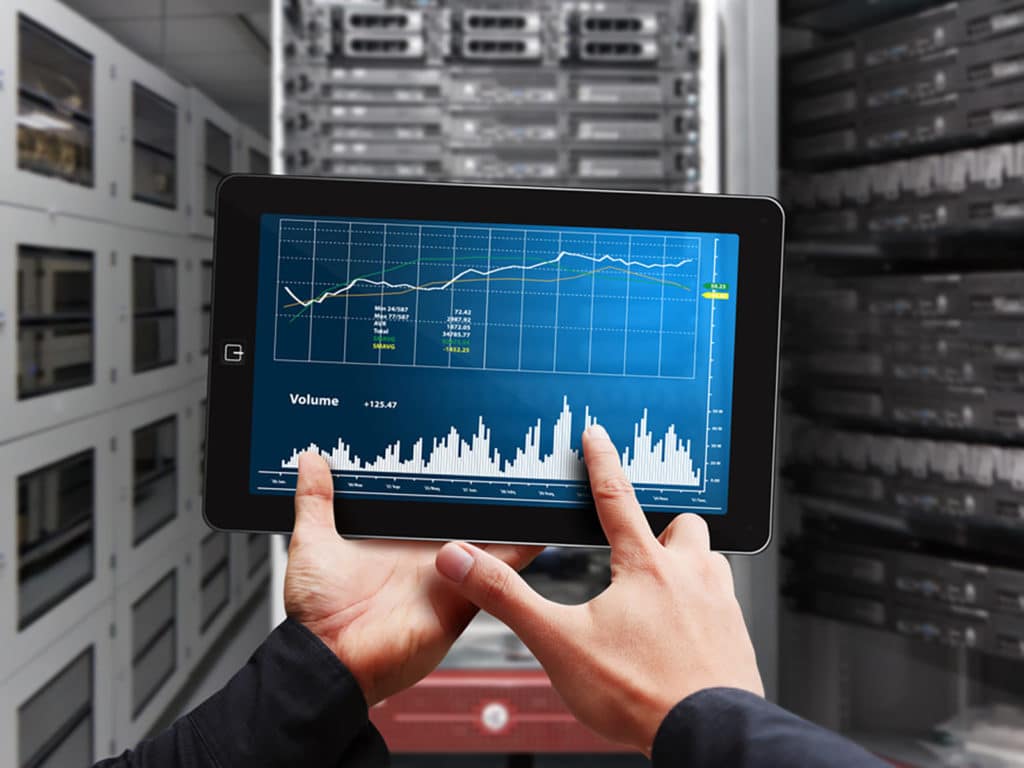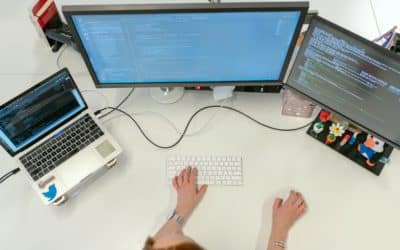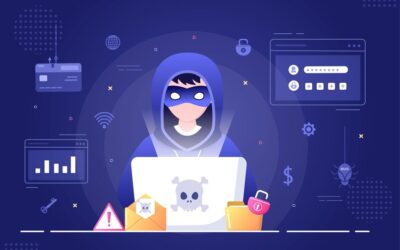By Mary Grlic
Think about all of the ways you keep your home and the belongings inside of your home safe. Perhaps you have a pair of diamond earrings that you keep in a locked jewelry box. When you leave the room, you lock the door. After leaving the house, you lock the back door as well. It takes several layers to protect your earrings. You want to follow the same processes to protect your digital data and network through cybersecurity.
Accounting IT and cybersecurity is the practice of protecting networks, electronic data, and devices from unauthorized use or access. With a lot of our data online, proper cybersecurity measures are crucial to protect the integrity and safety of our devices. Without a secure network, hackers can easily access your system. They may steal your banking information or override your passwords so you can no longer access your accounts. Attackers can plant malware or viruses into your device that can corrupt or lock your files.
With the proper security measures, you can minimize the chances of these things happening. It is important to understand the risks and ways to enhance your cybersecurity to keep your network safe.
What are the risks?
Having poor cybersecurity puts your information at risk. Hackers or attackers may try to exploit your device to steal your private information. They often take advantage of the vulnerabilities in your system, such as outdated operating systems, to hack your device. Hackers may deploy malware on your device, like viruses, computer worms, or trojan horses. Viruses self replicate by modifying computer programs and inserting their code. Computer worms are self replicating malware programs that infect other computers by duplicating themselves while remaining active on infected systems. A trojan horse is any malware that misleads users of its true intent by pretending to be a legitimate program. These sorts of files or links may come through your email or within a website. Do not open anything unless you are sure it is from a trusted sender. Firewalls are designed to protect against hackers by monitoring and controlling incoming and outgoing network traffic based on predetermined security rules.

How to minimize the risks of a cyberattack
There are several ways you can try to minimize the risks of a cyberattack. With good cybersecurity practices, you can limit the potential of a cyber threat.
Create strong passwords and update them frequently
The stronger a password is, the less likely it will be that a hacker can guess your credentials. A strong password is a combination of uppercase and lowercase letters, numbers, and symbols. Try to update your passwords or use different passwords for different accounts. If you use the same password for everything, a hacker may be able to access all of your accounts by knowing that one password.
Use two-step or multi-step authentication
If someone knows your login credentials, they could access your accounts from anywhere at any time. By enabling two-step verification, you can make sure that no one can access your account without going through another layer of identification. Your account host (Apple, Google, etc.) may notify you if your password was compromised or another user was trying to access your account. Always stay updated with these alerts, as they are crucial to prevent data corruption. Using a hardware key vs authenticator app adds an extra layer of security when verifying your identity during the two-step verification process. To protect your cybersecurity, always do your best to keep your login information as secure as possible.
Update software frequently and use an updated antivirus system
By keeping your device up to date, you will be a less vulnerable candidate for security attacks. Good malware protection can prevent malicious threats. Antivirus often detects, assesses, and removes malware threats before they become an issue. By keeping an up-to-date antivirus program on your computer or device, you can be better protected against malware. Do cell phones need antivirus? It’s essential to also consider installing antivirus software on your mobile devices to protect them from malware and other security threats.
Install a firewall for an additional layer of protection
Firewalls are security devices that monitor incoming and outgoing traffic within your network. Use a firewall for another layer of protection when searching the web or using your internet connection. Firewalls protect you and your network against interception or access from outside people like hackers. It is important to set up a firewall in your business or home. Your home network may already have a firewall that you can configure using the owner’s manual.
Be aware of phishing
Phishing is one of the easiest ways for hackers to access your information. It is the most common approach that cyber attackers use to hack firms. In its most basic form, a phishing email is a fraudulent message disguised to look legitimate. Hackers may pretend to be your boss or send a link with a fake domain. By opening a link or downloading a document, you may be deploying malware onto your device. Always be aware that a link sent through email or text can be a phishing scam. Be cautious when opening anything online. Avoid opening any link unless you know it is a trusted sender!
Be careful when connecting in public
Although easy to connect to and use, public wireless internet networks are not very secure. Hackers may access your information through public networks to deploy malware or viruses onto devices. Hotspots may not be the best option either. Without proper security, they are easy to access or intercept. To ensure the safety of your hotspot, encrypt your connection and create strong passwords. If you are using a public computer (in a library or hotel), turn on “private browsing mode” so that your search history or personal information is not saved on the device. You can still get malware when using private browsing, so continue to practice good cybersecurity. To securely protect your network connection, it is a good idea to use a VPN (a virtual private network). VPNs encrypt your information, making it more difficult for hackers to access. Additionally, consider using a security key vs authenticator app for an added layer of security when accessing sensitive accounts.
Data Encryption
Data encryption can also protect your cybersecurity and prevent unauthorized access by encoding your files. Hackers struggle to access encrypted data. You may choose to encrypt files, documents, or emails to protect you and your personal information. When using the internet, be sure your website’s Transport Layer Security (TLS) is secure. The most secure websites are encrypted and begin with “HTTPS.” If the browser you use is not encrypted, the information relayed through that site is plaintext that hackers can intercept. Sites that begin with “HTTP” do not have any service identifier, so use these websites with more caution. Your web browser may inform you that a site is “not secure” or “dangerous,” so pay attention to these notifications to protect your device.
You can also send emails with more protection using features like “confidential mode” in Google. When you toggle “confidential mode” on, your messages cannot be forwarded, responded to, copied, or downloaded. You can also create a password so users cannot access the email without the added security layer. Confidential mode does not encrypt your message, but it does ensure that unauthorized users do not have access to your emails.
Protecting your Cybersecurity
Whether you are working for an organization or just using a personal device, you must put in the Whether you work for an organization or use a personal device, you must put in the necessary systems to safeguard your network. Some of the most protective software and systems include antivirus, malware protection, firewalls, reputable wireless connection, network encryption, and virtual private networks (VPNs). It is a good idea to use some cyber awareness training so that employees can understand the risks of poor security and try to prevent data misuse. Security monitoring systems can also help companies stop a data breach before it is too late. Many IT companies will use software that can detect suspicious activity or the presence of a virus to protect your device. Protect your personal or organizational networks to ensure the maximum safety of your device.
Cybersecurity at Computero
Computero can help organizations improve their cybersecurity. Services like firewalls, server monitoring, and network monitoring can help to protect your organization. Visit our website or contact us to learn more about our managed IT services!





0 Comments